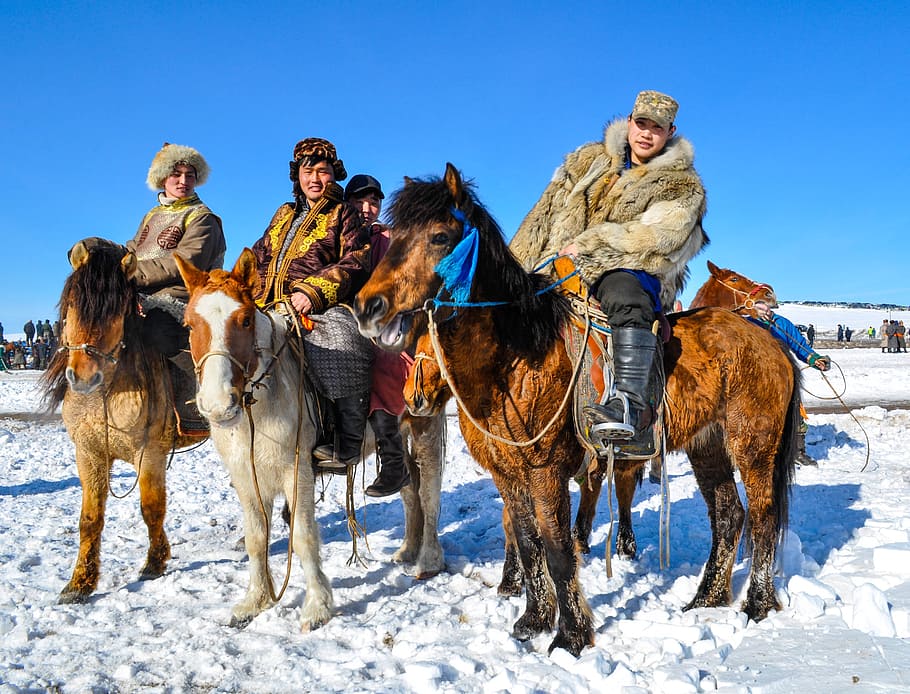Adapting to the Dzud: World Bank Report Calls for Resilient Social Protection in Mongolia
The World Bank notes that Mongolia’s social protection system has proven capable of scaling rapidly during emergencies, as demonstrated during the COVID-19 pandemic.

- Country:
- Mongolia
A newly released World Bank report underscores the urgent need for Mongolia to adapt its social protection systems to meet the challenges posed by increasingly frequent and severe climate-induced shocks. The study, titled Assessing the Adaptability of Social Protection and Enhancing Herder Resilience Against Climate Shocks in Mongolia, highlights that the country’s existing systems have shown adaptability in crises like COVID-19, but warns that more systemic reforms are necessary to withstand future threats such as dzud, floods, and other disasters.
The report arrives at a time when climate risks are accelerating and disproportionately affecting vulnerable populations, including Mongolia’s sizable community of herders, many of whom rely on livestock for both income and survival. Dzud events, characterized by summer droughts followed by harsh winters, have become more frequent and severe in recent decades—decimating herds, destabilizing local economies, and jeopardizing the well-being of entire communities.
Building on Past Success: Lessons from the COVID-19 Response
The World Bank notes that Mongolia’s social protection system has proven capable of scaling rapidly during emergencies, as demonstrated during the COVID-19 pandemic. Cash transfers, food assistance, and targeted aid helped cushion the economic blow for many households.
However, Taehyun Lee, the World Bank’s Country Manager for Mongolia, emphasized the need for institutional transformation:
“Mongolia’s social protection system has demonstrated its capacity to expand during shocks... But further enhancements are necessary to improve the adaptability of social protection to economic and climate-induced challenges and support vulnerable populations more effectively.”
Vulnerability Across the Landscape: Urban and Rural Risks
Mongolia’s dual geography—vast rural steppes and increasingly dense urban centers—poses distinct but equally concerning vulnerabilities. In the countryside, herders face dzud, which can lead to large-scale livestock mortality. In cities, urban flooding and infrastructure inadequacies threaten the livelihoods of the urban poor.
The report warns that both types of climate shocks are expected to intensify in frequency and severity due to climate change. The combined impact could undermine progress on poverty reduction and sustainable development unless adaptive measures are scaled.
Six Key Recommendations for Adaptive Social Protection
The report lays out a detailed roadmap to enhance adaptive social protection (ASP) in Mongolia. These measures are intended not just to respond to shocks, but to build long-term resilience, particularly for herder households, who form a backbone of the rural economy:
-
Integrate ASP into Legal Frameworks Enshrine adaptive social protection principles within Mongolia’s social assistance laws, ensuring formal commitment to climate-responsive welfare.
-
Align ASP with Disaster Risk Management (DRM) Coordinate ASP mechanisms with national and local DRM plans, so social protection is not reactive but a planned part of disaster preparedness.
-
Establish Disaster Risk Financing Guidelines Create a financing strategy that includes clear, sustainable pathways to fund ASP during emergencies, including mechanisms for trigger-based disbursement.
-
Invest in Data and Digital Solutions Develop technical platforms to identify and target vulnerable households in real-time using improved data analytics and household registries.
-
Offer Advance Lump-Sum Payments to Herders Enable herders to access their benefits in advance before predicted dzud events, giving them a financial cushion to purchase fodder or relocate livestock.
-
Empower the Local Livelihood Support Council (LLSC) Expand the scope and capacity of LLSCs to extend existing social assistance coverage during and after shocks, particularly in herder-dominated regions.
Dzud: A Climate Emergency with Socioeconomic Ramifications
The dzud phenomenon, once considered an episodic challenge, is now a recurring crisis. According to Mongolia’s National Emergency Management Agency, recent dzuds have killed millions of livestock, leading to financial ruin, food insecurity, and migration to urban areas. These effects ripple into urban unemployment, strain on housing, and social service pressures.
In this context, ASP not only serves as a safety net, but as a climate adaptation strategy critical to Mongolia’s development and sustainability goals. Without systemic changes, the impact of climate shocks could reverse gains in poverty reduction, education, and gender equality.
Toward a Resilient Future: Policy Implications
As Mongolia prepares for future environmental and economic disruptions, the World Bank’s recommendations serve as a blueprint for resilient governance. Key actions will require political will, inter-agency coordination, financial investment, and continued support from development partners.
Integrating anticipatory actions—such as early warning systems, predictive modeling, and community engagement—into social protection will also be critical. By strengthening these systems today, Mongolia can ensure that its most vulnerable citizens are not only protected but empowered to thrive amid an uncertain climate future.










